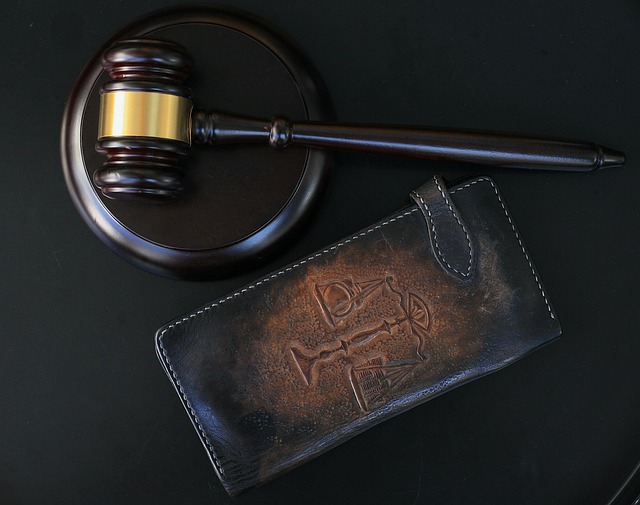Mail wire fraud scams, using tech to impersonate banks/agencies, steal financial info and cause losses. Victims face challenges in post-conviction proceedings, needing legal aid to protect their rights. Robust proceedings ensure justice, with key rights including appealing sentences or convictions based on new evidence or errors. Competent criminal defense attorneys navigate complex landscapes for fair outcomes.
Mail wire fraud, a sophisticated and increasingly prevalent crime, poses significant threats to individuals and institutions alike. This article delves into the intricate world of mail wire fraud schemes, exploring legal protections for victims during investigations and proceedings. We also examine challenges faced by victims seeking justice post-conviction and discuss strategies to ensure their rights are upheld in this complex landscape. Understanding these dynamics is crucial for both victims and advocates navigating the complexities of mail wire fraud cases.
- Understanding Mail Wire Fraud Schemes
- Legal Protections During Proceedings
- Challenges Facing Victims' Rights
- Strategies to Ensure Post-Conviction Justice
Understanding Mail Wire Fraud Schemes

Mail wire fraud schemes have become increasingly sophisticated, leveraging technology to deceive victims across the country. These scams often involve fraudulent emails or text messages that appear to come from legitimate sources, such as banks or government agencies. The goal is to trick individuals into revealing sensitive financial information, like account numbers and passwords, under the guise of an urgent matter. Once the fraudsters have accessed this data, they can swiftly transfer funds, leaving victims with significant losses and compromised financial security.
Understanding these schemes is crucial during post-conviction proceedings for those who have fallen victim or been implicated in such cases. The right knowledge empowers individuals to protect their rights and navigate legal processes effectively. In a world where scams are becoming more elaborate, being aware of common tactics, like phishing attempts and impersonation, can help both corporate and individual clients avoid becoming casualties of these fraudulent activities. This is especially important for fostering trust within the philanthropic and political communities, ensuring that donations and contributions reach their intended destinations rather than lining the pockets of scammers.
Legal Protections During Proceedings

During mail wire fraud proceedings, individuals accused of such crimes benefit from legal protections designed to safeguard their rights. These protections are especially crucial in white-collar defense cases, where complex financial transactions and intricate legal arguments often come into play. Accused persons have the right to legal representation, ensuring they can mount a robust defense through skilled attorneys who can navigate the intricacies of these cases.
The process includes access to evidence, the ability to confront accusers, and the right to a fair trial, including jury trials where available. These rights are essential in achieving extraordinary results, as they allow for thorough scrutiny of allegations, ensuring that justice is served while protecting the interests of the accused.
Challenges Facing Victims' Rights

Victims of mail wire fraud often face significant challenges when it comes to their rights during post-conviction proceedings. One of the primary obstacles is the complex legal process that follows such high-stakes cases. Understanding and navigating the intricate web of laws and regulations can be a daunting task for individuals who may not have a legal background. This complexity sometimes results in victims feeling disempowered, especially when they are up against well-resourced defendants with experienced legal teams.
Moreover, ensuring their rights are protected becomes even more critical when avoiding indictment is a priority. Unprecedented track records of successful fraud cases can create a chilling effect, leading victims to hesitate in coming forward. However, it’s essential for victims’ rights organizations and legal aid services to be proactive in providing support and guidance, especially in regions with limited resources, to ensure that individuals affected by mail wire fraud are not left vulnerable during these trying times.
Strategies to Ensure Post-Conviction Justice

After a conviction, ensuring justice continues through robust post-conviction proceedings is paramount. Individuals convicted of crimes have specific rights during this process, which includes the ability to appeal and challenge their sentence or conviction based on new evidence or procedural errors. A competent criminal defense attorney plays a pivotal role here, guiding clients through the complex legal landscape. They help prepare and file petitions, conduct thorough investigations, and assemble compelling arguments to present before judges or juries in these trials.
The goal is to achieve a just outcome, correcting any miscarriages of justice. With an unprecedented track record in defense, experienced legal teams can navigate the intricacies of post-conviction strategies. This involves meticulous case analysis, leveraging applicable laws, and presenting powerful narratives to advocate for their clients’ rights during these critical proceedings.
Mail wire fraud, a sophisticated and evolving crime, presents significant challenges for victims. Understanding the schemes, leveraging legal protections during proceedings, addressing victim rights’ complexities, and employing strategies for post-conviction justice are crucial steps towards ensuring fairness and compensation. By staying informed and proactive, individuals can navigate this intricate landscape and assert their rights during these critical stages, ultimately fostering a more robust framework for combating mail wire fraud.






